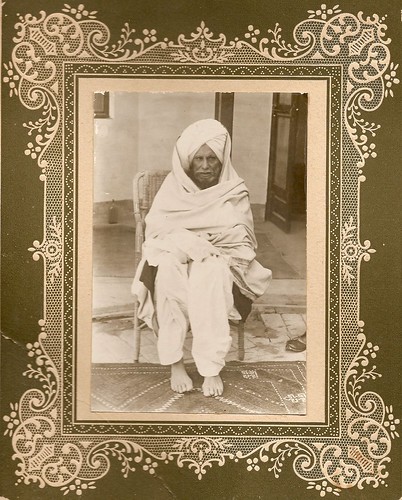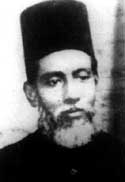By Ayub Khan, TwoCircles.net
TwoCircles.net introduces “The History Column.” This fortnightly column will feature narratives, incidents, stories, from the past and not so recent past of Indian Muslim history. Columnist Ayub Khan is a student of history and Political Science.
One of the reasons of the colonial British Empire’s ability to rule over India was its elaborate spy network which kept a big brotherly eye on all leading and aspiring public figures. Naturally the Indian Muslim scholars and divines were also on its watch list. It goes to the credit of the British Raj establishment that it was able to infiltrate some of the innermost circles of many prominent Muslims. They were non-discriminating in their choice of targets. Deobandis, Barelwis, Ahle Hadith, as well as figures from the modernist and rationalist were all on their radar.
Mr. Mazhar Ali Thanwi was in the Criminal Investigation Department and used to voluminously record the speeches of anti-establishment speakers at mosques and other places. Shorish Kashmiri, a leading nationalist speaker and author, in his biography records various instances where he encountered Mazhar Ali. Kashmiri alleges that Mazhar Ali often used to exaggerate what was said in the speeches in his reports to the police department. For his services to the empire Mazhar Ali was conferred with the honorific title of Khan Bahadur. Mazhar Ali also happened to be the brother of prominent Deobandi scholar Maulana Ashraf Ali Thanwi.

Pir Jamaat Ali Shah [Photo from The Naqshbandiya Foundation for Islamic Education (NFIE)]
There were reportedly several spies among the disciples of Sufi Pir Jamaat Ali Shah of Punjab. During the Shahid Gunj Mosque (Lahore) protests of 1935 he was made the Amir-e-Millat and Muslims of all schools of thought accepted his leadership. But indecisive by nature, he wasn’t able to do much apart from making sensational speeches. At one point he had claimed that he would jump from the Badshahi Mosque if Shahid Gunj is not returned to the Muslims. With most other leaders of the movement in prison the Muslims turned to him for guidance but there was none forthcoming. Shorish Kashmiri, who take part in the movement, observed that there were several British agents among the Pir Saheb’s disciples. Right at the moment of taking action they advised the Pir that he had never missed a Hajj in his adult life and should perform that year as well. The Pir Saheb went into a Muraqeba only to emerge and say, ‘The call has come. I am going for Hajj.’ Thus died the Shahid Gunj movement.
Another curious case of spying is that of Maulvi Anis Ahmed (BA). He was reportedly a graduate of both Aligarh Muslim University and the Deoband Islamic seminary. He first spent some time with Sheikh ul Hind Mehmoodul Hasan, famous for his Red Scarf movement, and reported on his activities to the CID. He later shifted base and moved to Azamgarh. He became a student of famous Quranic exegete Maulana Hamiduddin Farahi at the pretext of learning the Holy Qur’an. According to Farahi’s biographer, Anis Ahmed was an accomplished scholar with at least four tracts and books to his name: 1) Taleem-e-Quran Ka Asar Sahaba Par (The Impact of Quranic Teachings on the Companions) 2) Kaleed-e-Qur’an 3) Anwarul Qur’an 4) Urdu translation of Maulana Farahi’s exegesis of Qura’nic chapters until 1916.

Maulana Hamiduddin Farahi [Photo from dar-ut-tazkeer.com ]
Anis Ahmed was well versed in Urdu, Arabic, and English as is evident from his scholarly work. Those close to Maulana Farahi claim that he used to be in regular correspondence with Anis Ahmed on scholarly matters even after the latter had left Azamgarh. How such a person become a spy is unclear. But keeping in mind the dirty tactics used by the Raj it might not be surprising if he was coerced or forced into doing so.
References:
Kashmiri, Shorish. Bo-e-Gul, Nala-e-Dil, Dood-e-Chiragh-e-Mehfil. Lahore. Chataan Publications (2004).
Islahi, Sharfuddin. Zikr-e-Farahi. Lahore. Darul Tazkeer (2002).
—
Ayub Khan can be reached at [email protected].

